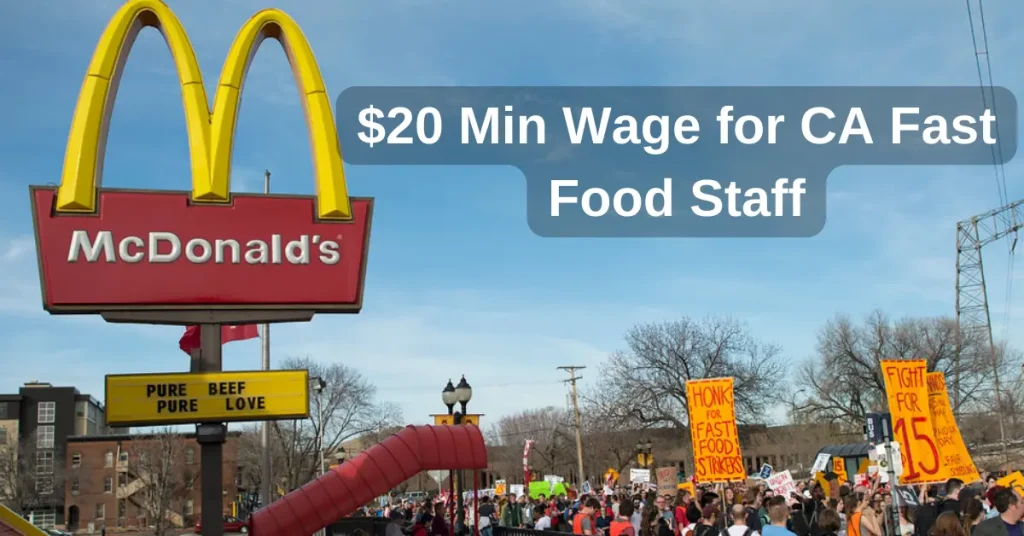In a groundbreaking development, fast food workers across California are set to receive a minimum wage of $20 per hour.
This significant increase marks a substantial stride in the ongoing fight for fair wages and better working conditions within the fast food industry.
UPDATES
- California will implement a new law starting Monday, guaranteeing fast food employees a minimum wage of $20 per hour, aiming to provide financial stability in an industry known for low pay rates.
- Concerns arise about potential price increases in a state burdened by a high cost of living.
- The law receives support from fast food franchise owners but raises concerns among some, like Alex Johnson, who highlights financial strain and the need for price hikes.
- Studies suggest that previous wage increases have not led to decreased employment, with positive effects on job rates.
- The law applies to fast food restaurants without table service and part of national chains with at least 60 establishments nationwide, with exemptions for certain establishments.
- Panera Bread, initially appearing exempt, is confirmed to be included under the law.
- The new law represents a significant step towards fair wages for fast food workers in California, with potential economic impacts and price increases being closely monitored.
California will enact a new law starting Monday, ensuring that fast food employees receive a minimum wage of $20 per hour. This significant change aims to provide financial stability to workers in an industry known for its low pay rates. However, concerns arise regarding potential price increases, particularly in a state already burdened by a high cost of living.

Impact on Fast Food Workers
Ingrid Vilorio, an immigrant who joined McDonald’s in 2019, expressed relief at the wage increase, emphasizing the challenges of supporting herself and her family on previous wages. The law acknowledges that many fast food workers, like Vilorio, are adults relying on these jobs as their primary source of income.
Challenges for Business Owners
While the law receives support from trade associations representing fast food franchise owners, some, like Alex Johnson, owner of multiple Auntie Anne’s Pretzels and Cinnabon restaurants, voice concerns. Johnson highlights the financial strain the wage increase places on businesses, necessitating price hikes and impeding expansion plans.
Economic Implications
Critics worry that higher wages could lead to job losses, but studies by experts like Michael Reich from the University of California-Berkeley suggest otherwise. Previous wage increases have not resulted in decreased employment, with data indicating positive effects on job rates. Additionally, many larger cities in California already have minimum wage laws exceeding the statewide $16 per hour, easing the transition for some establishments.
Read also: Law Enforcement Investigating Sex Trafficking Conduct Searches at Sean ‘Diddy’ Combs’ Residences
Legislative Details
The law, a result of extensive negotiations between the fast food industry and labor unions, applies to restaurants without table service and part of national chains with at least 60 establishments nationwide. However, exemptions exist for certain establishments, such as those within grocery stores and those primarily selling bread. Notably, Panera Bread initially appeared exempt due to bread production on-site, but clarification from the Newsom administration confirms its inclusion.
In brief
The new law marks a significant step towards fair wages for fast food workers in California. While it addresses long-standing issues of low pay in the industry, concerns about its economic impact and potential price increases remain. As the law takes effect, its effects on businesses and workers alike will become clearer, shaping the landscape of the fast food industry in California.